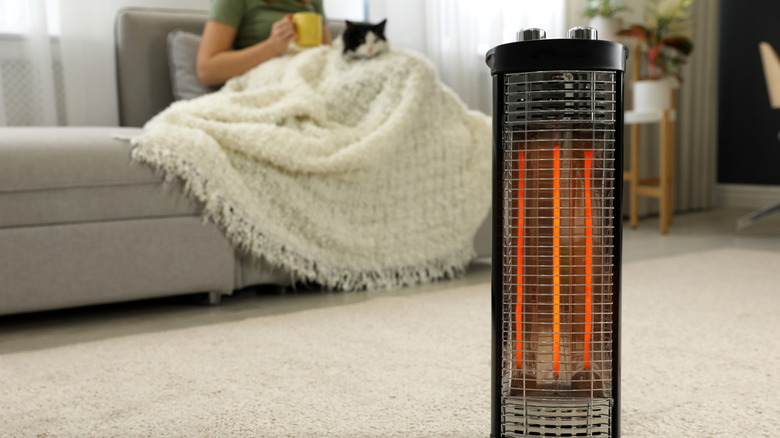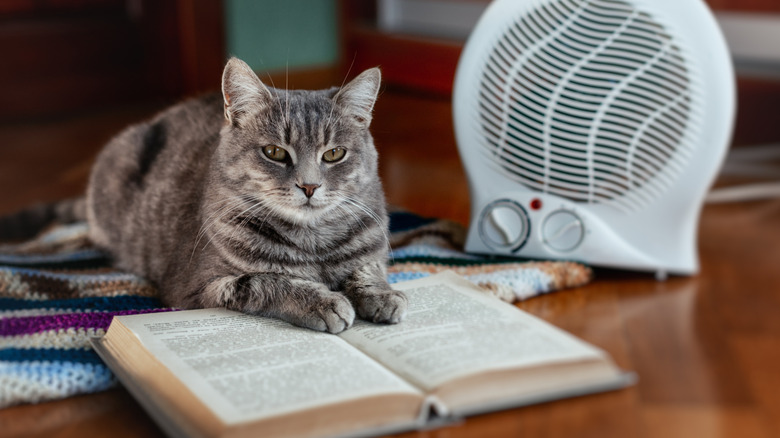Are Electric Space Heaters Really That Deadly? Here's What You Need To Know
Electric space heaters have bad habits. They often pull as much power as a standard residential power outlet can handle, and they heat themselves and nearby objects beyond the point of safety. Because of this, space heaters cause most of the injuries and deaths when a residential fire is caused by heating equipment ... about 1,100 fires and 50 deaths per year, according to the Consumer Product Safety Commission. But like cars and lawn darts, electric space heaters can be used safely, and it's not really that difficult.
Of course, the more your space heater can do to promote safety, the less you'll have to remember to do. Start by buying a heater with a certification from UL, ETL (Intertek), or CSA International. Safety starts with buying the safest equipment and not circumventing those protections. Safety sensors like tip-over switches and overheating sensors go a long way toward making space heaters less dangerous. Heating element guards can prevent burns, and built-in ALCI plugs, while uncommon, can prevent shocks.
Built-in smart technology should make some space heaters safer, but even the simplest device can be made safer by simply following the manufacturer's directions. Though there are occasionally good reasons to do so, don't forget that bypassing an electric heater's safety shutoff is inherently unsafe. And note that the same precautions apply to most electric heaters, including oil-filled space heaters.
Using an electric space heater safely
Safety practices can sometimes seem over-the-top. Imagine being warned to drive safely by never exceeding 7 miles per hour and never driving beyond sight of a hospital. But even if the list of mistakes you should never make while using a space heater sounds excessive, you can learn from them and act more safely overall.
Most guidance, however, is little more than common sense. Don't use a damaged space heater, or one with a damaged or worn power cord that's plugged directly into a grounded wall receptacle (not an extension cord). Don't try to hide excess lengths of its power cord, and don't put anything, including rugs, on top of the power cord or the heater. (If you were thinking about putting a rug over the heater itself, maybe buy a sweater and leave the thing turned off.) Space heaters should only be operated on the floor where it is level, stable, and preferably non-combustible.
More than a quarter of large residential fires start in objects placed too close to space heaters, so keep combustible and flammable objects, as well as pets and children, three feet or more from the heater. According to the U.S. Fire Administration, smoke alarms were missing in 44% of homes with large fires caused by heating sources, so make sure you have working smoke and carbon monoxide detectors in place. And when the time comes to leave the room or go to sleep for the night, shut the heaters down completely: turn them off, unplug them, and allow them to cool completely before leaving the area. Never leave a space heater alone in a room by itself.

